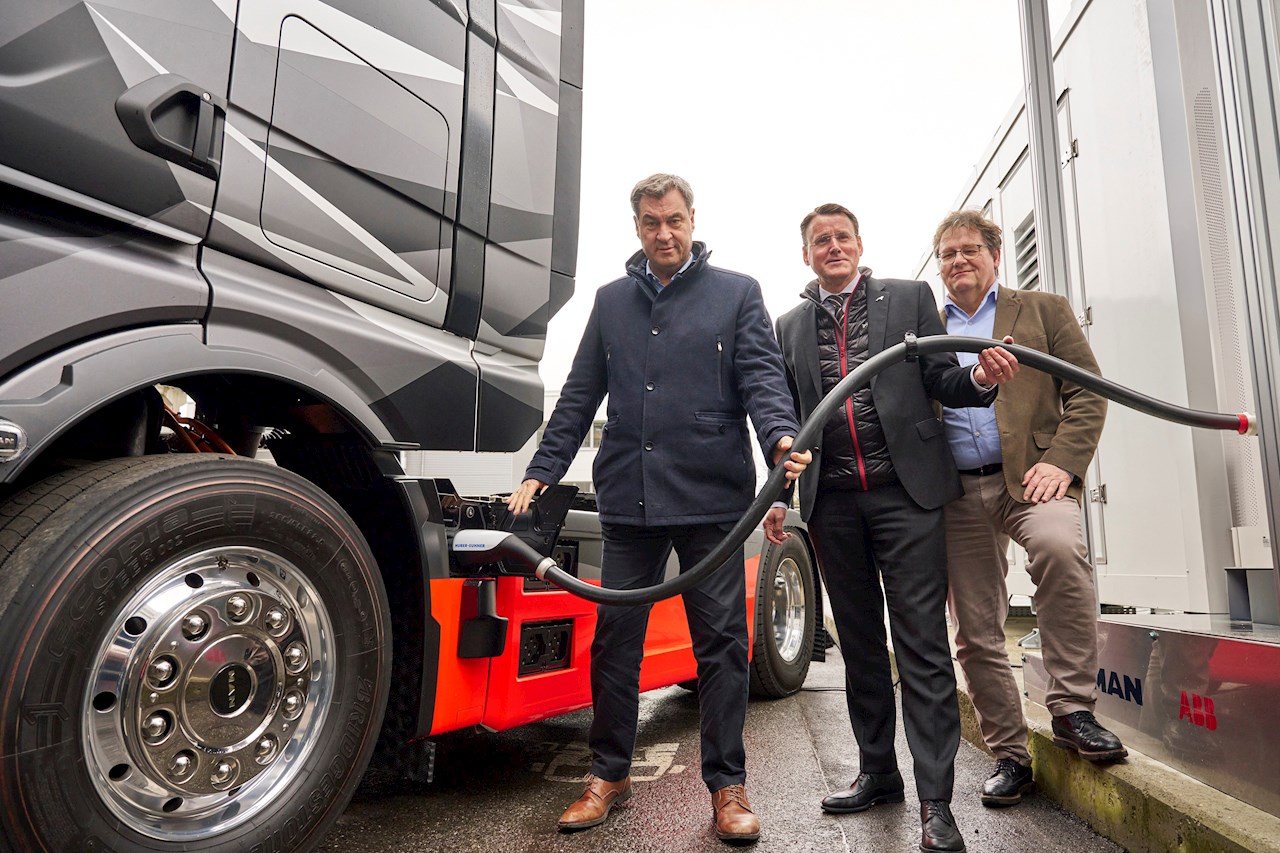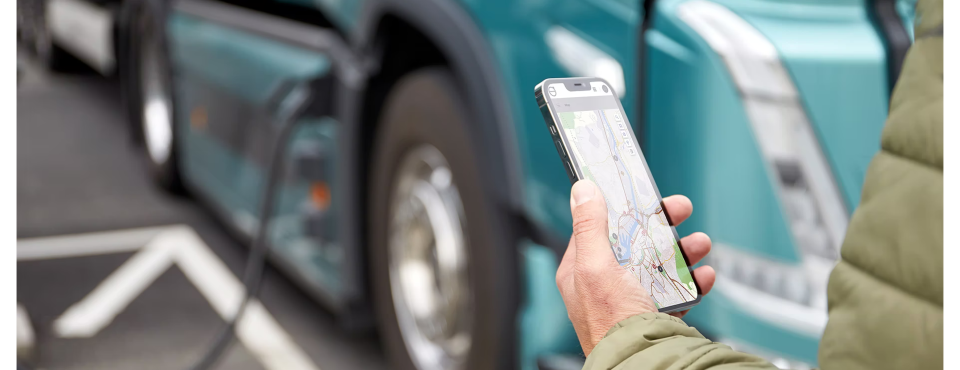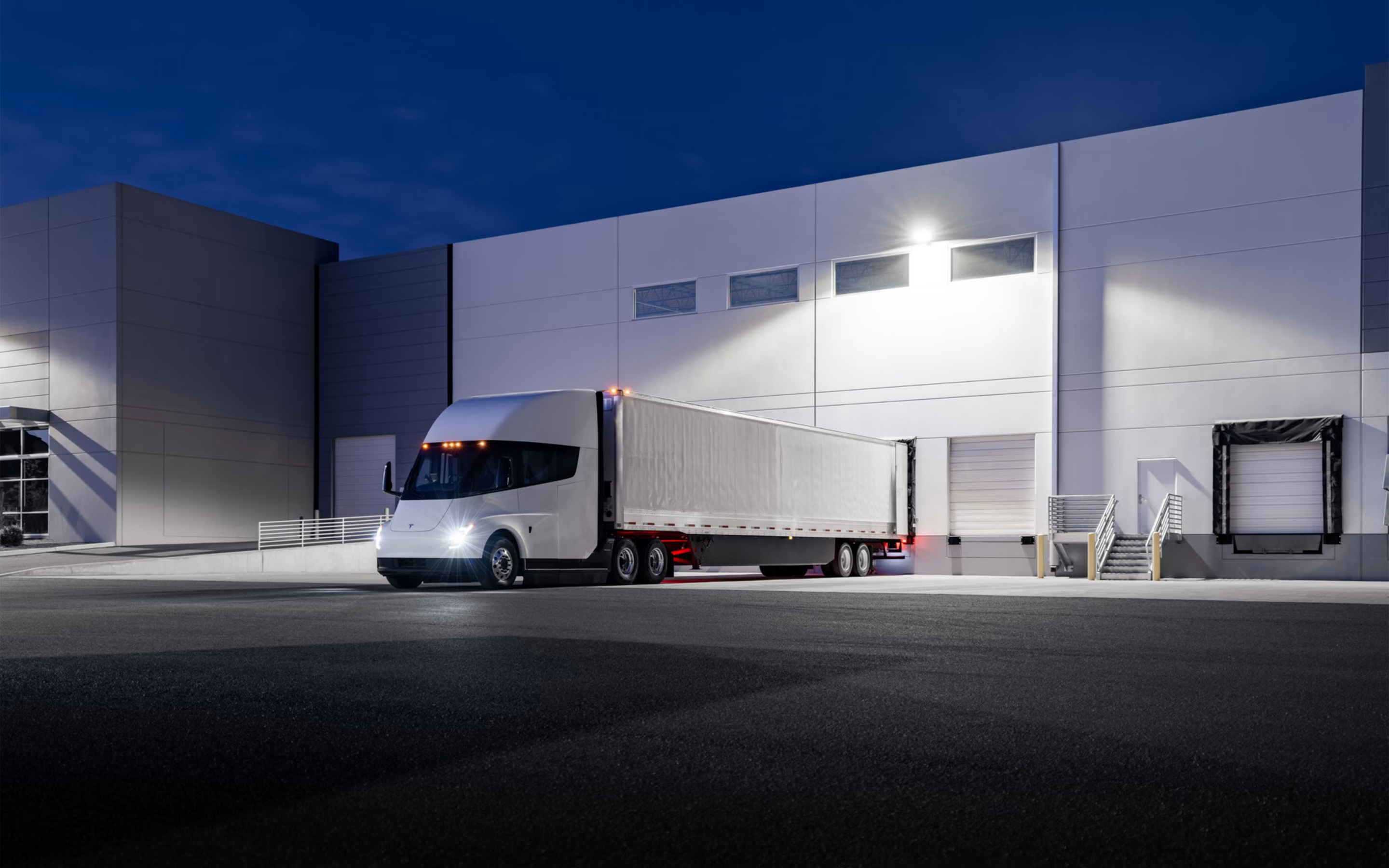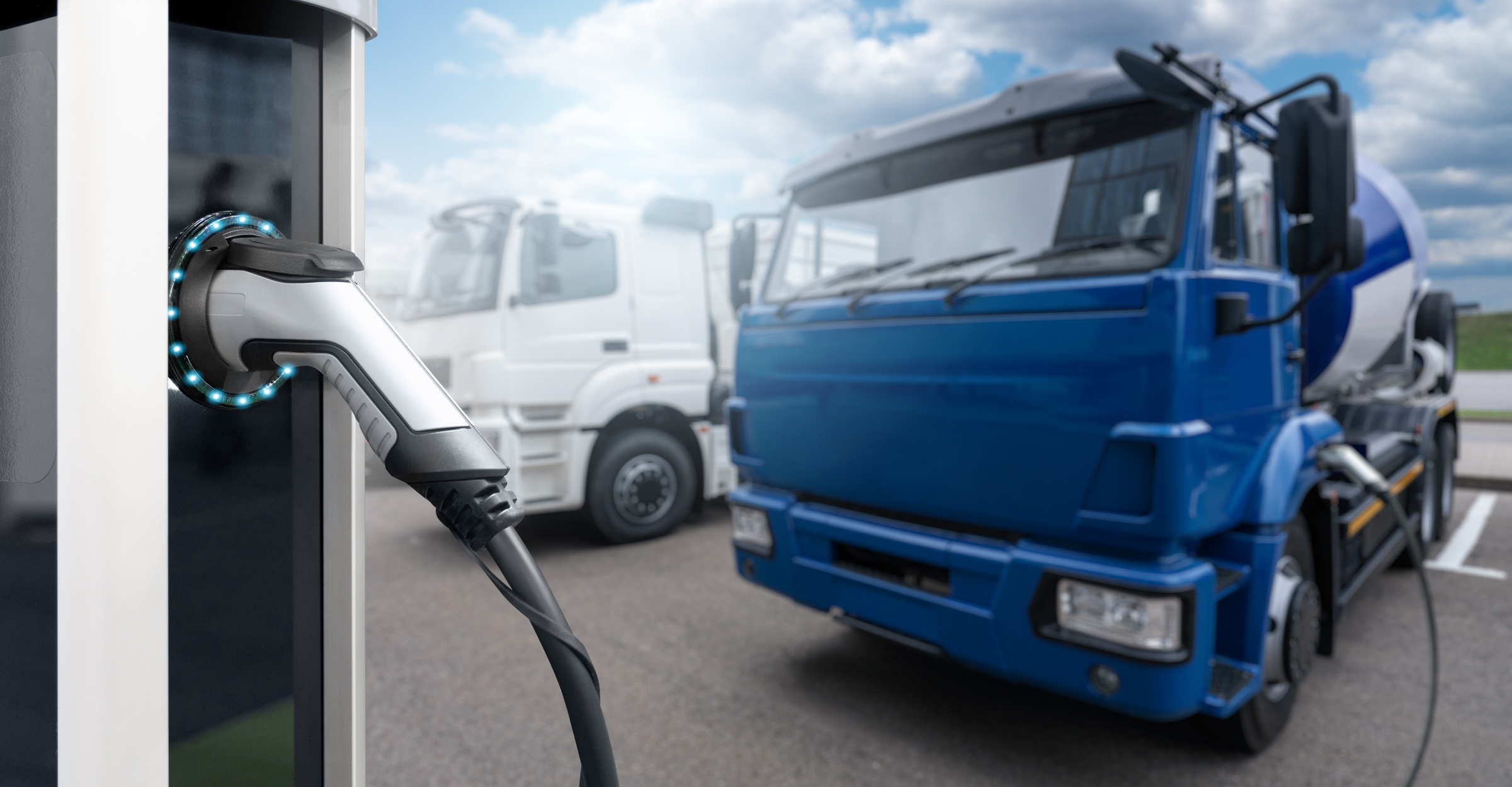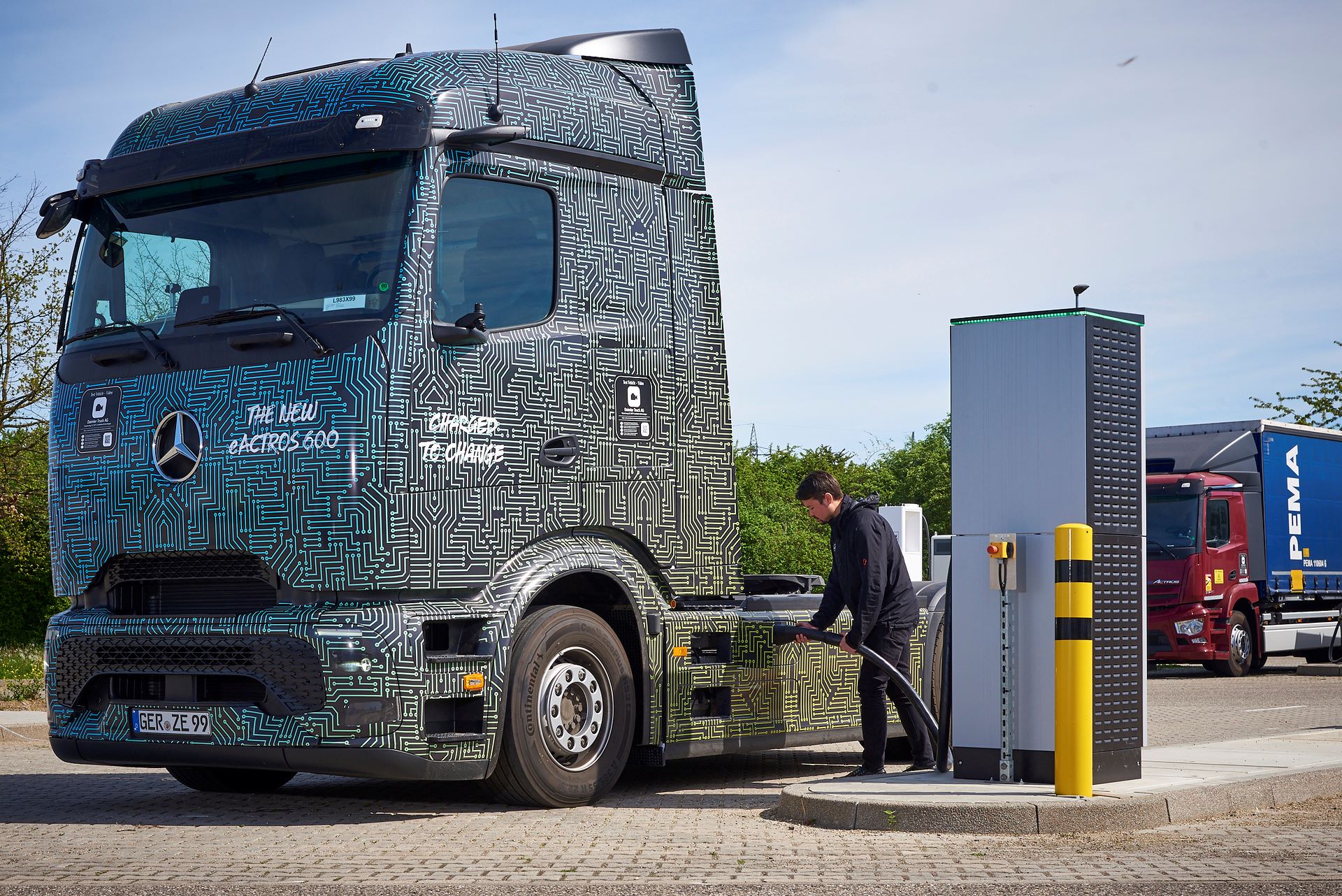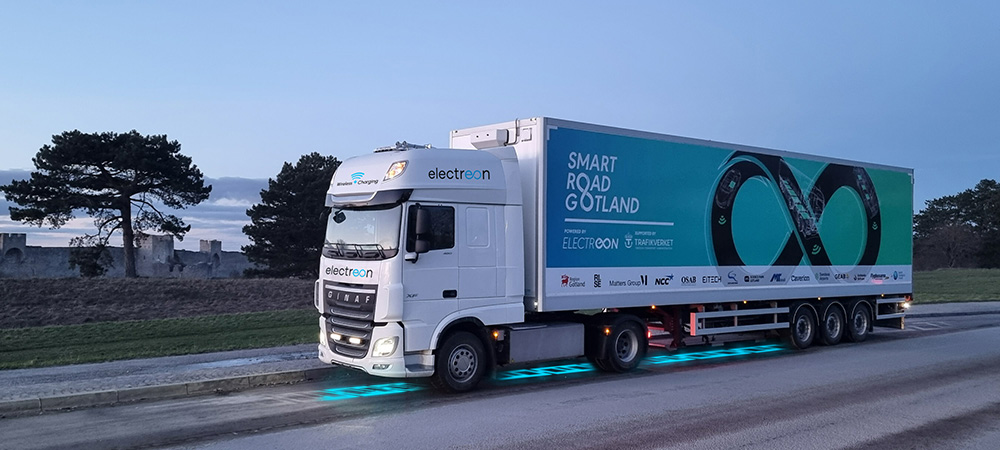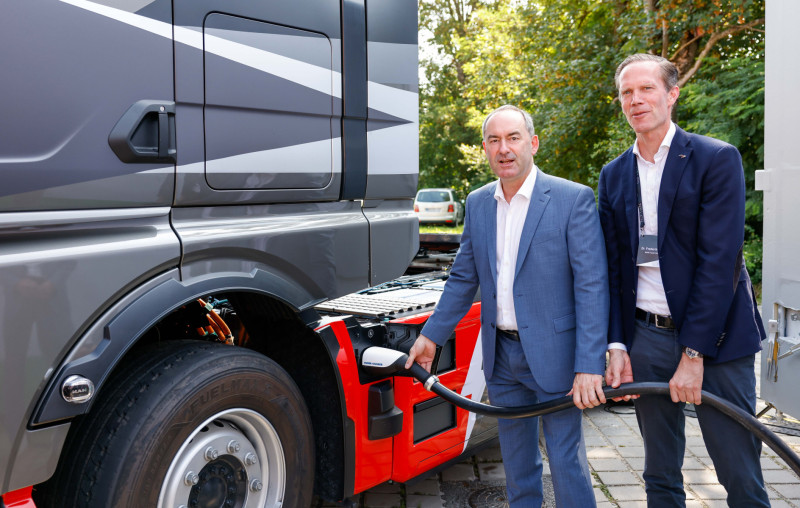
The charging premiere, which was attended by the Bavarian State Minister for Economic Affairs, Regional Development and Energy, Hubert Aiwanger, the Chairwoman of the German Council of Economic Experts, Prof Monika Schnitzer, and around 200 other guests from politics, the media, business and science, was part of the presentation of the results of the Nefton research project launched in 2021.
In the project, which is funded by the German Federal Ministry for Economic Affairs and Climate Protection, MAN Truck & Bus and the Technical University of Munich (TUM) as well as five other partners from science and industry, analysed the system consisting of an all-electric truck, charging station and grid connection and designed it for various application scenarios. The focus is on the Megawatt Charging System (MCS) for ultra-fast charging of electric trucks during the driver's break or when loading and unloading at the ramp.
With megawatt charging, electric trucks will become an emission-free alternative to today's diesel trucks in all common transport applications - including long-distance transport. Around 80% of all goods in Germany are transported by road. This means that road haulage accounts for the vast majority of greenhouse gas emissions in freight transport. Switching to zero-emission trucks is therefore a key lever for achieving the goals of the Paris Climate Agreement.
Prof Markus Lienkamp from the Chair of Automotive Engineering at TUM, who is leading the Nefton project consortium, explained: "The scientific facts speak for themselves: battery electric trucks have an efficiency of around 75%. Fuel cell trucks with an efficiency of only 26% and eFuels with an efficiency of just 14% are miles away from this. However, the infrastructure on the main transport routes is still lacking for the actual effective use of electric trucks. Megawatt charging technology is a huge step forward in this respect."
According to industry estimates, around 50,000 high-performance and megawatt charging stations will be needed by 2030 to sustainably drive forward the mobility transition for trucks in Europe. In the same year, half of all new MAN trucks registered in Europe are expected to be electric. This is why MAN is also involved in charging infrastructure projects such as Nefton.
At the beginning of July, a partnership was launched with the energy supplier E.ON to set up around 400 charging points at around 170 locations across Europe. With around 125 locations, this will also create the largest public commercial vehicle charging network in Germany to date. As part of the Traton Group, MAN is also involved in the Milence joint venture together with Daimler Trucks and AB Volvo, which is gradually building at least 1,700 commercial vehicle charging points in Europe. MAN also has its own charging infrastructure and corresponding consulting services in its portfolio for its customers through co-operations with partners.



